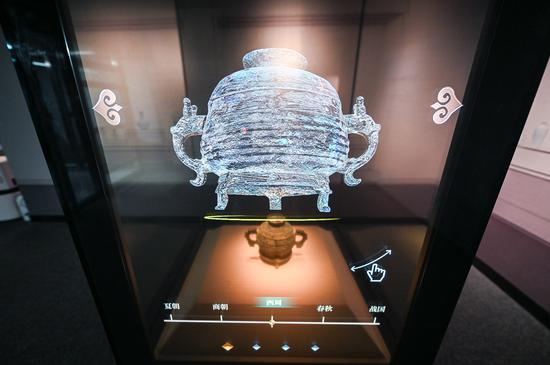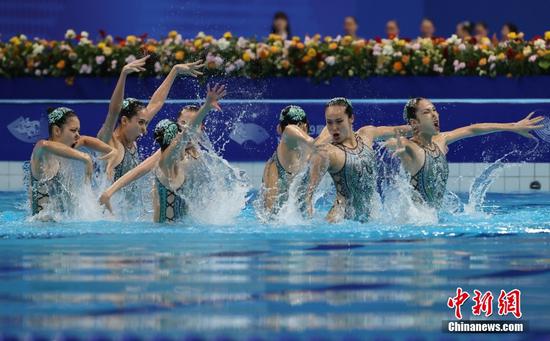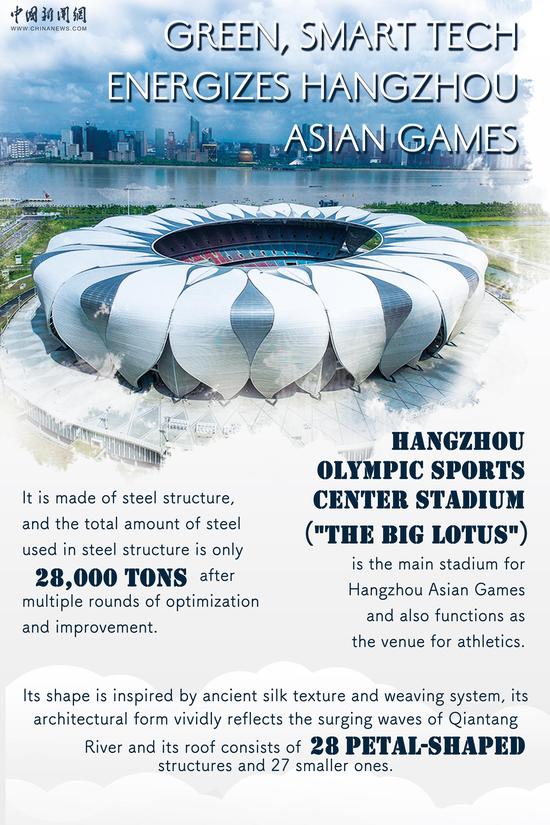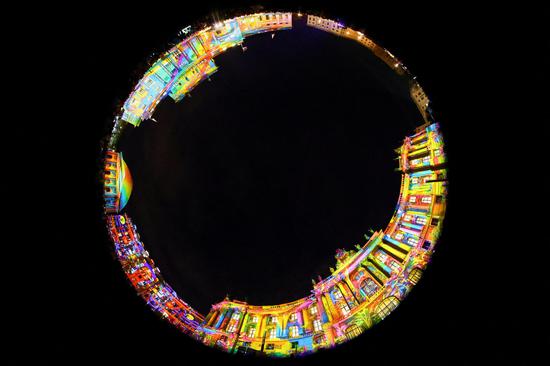Chinese scientists from Hefei, Anhui province, have created a quantum supercomputer prototype that is able to solve certain computing tasks 10 quadrillion times faster than the world's current most powerful supercomputer.
Developed by a research team from the Hefei-based University of Science and Technology of China, the computer, Jiuzhang 3.0, is able to solve a Gaussian Boson Sampling problem 10 quadrillion times faster than Frontier, the world's current most powerful supercomputer.
"Estimating with the best classical algorithms to date, generating a single ideal sample from the same distribution on the supercomputer Frontier would take about 600 years using exact methods, whereas Jiuzhang 3.0 takes only 1.27 microseconds to produce a sample," according to a study published online in the journal Physical Review Letters on Wednesday.
"Generating the hardest sample from the experiment using an exact algorithm would take Frontier about 31 billion years," according to the team, whose members include Lu Chaoyang, Liu Naile and renowned Chinese quantum physicist Pan Jianwei.
In 2020, the team led by Pan created the world's first light-based quantum computer prototype, Jiuzhang, which can reliably demonstrate a quantum advantage over classical computers.
The initial prototype used a new method of manipulating 76 photons to perform the extremely esoteric calculation in 200 seconds, while the same task would have taken Fugaku, the world's fastest classical supercomputer at the time, around 600 million years.
In 2021, the team upgraded the prototype to Jiuzhang 2.0, with 113 detected photons to demonstrate a more powerful calculation capacity for Gaussian Boson Sampling problems.
Jiuzhang takes its name from an ancient Chinese mathematical text.
Lu said that a series of innovations, including a newly developed superconducting nanowire single-photon detection scheme with fiber loop-based configuration, increased the number of detected photons for Jiuzhang 3.0 to 255, greatly improving the complexity of photonics quantum computing.
The scientists anticipate that the breakthrough will, on one hand stimulate more research on classical simulation algorithms, and on the other hand gradually address various scientific and engineering challenges in quantum computing research.
Quantum machines' astronomical computing power arises from their basic building blocks, called quantum bits, or qubits, according to the scientists.
Unlike bits of classical computers that present data as either 0s or 1s, similar to the on and off of a light switch, qubits can harness the strange property of quantum mechanics known as superposition and exist as 0s, 1s or everything in between, like the increments on a control knob.
Previously, the scientists said on various occasions that they were still far from making a general-purpose quantum computer.
Xinhua contributed to this story.


















































 京公网安备 11010202009201号
京公网安备 11010202009201号